- Home
- Alison Weir
Katheryn Howard, the Scandalous Queen Page 2
Katheryn Howard, the Scandalous Queen Read online
Page 2
“It cannot be easy being a younger son with no inheritance to look for,” Isabel said, ever the pacifist. “Edmund is one of nine, you know.”
“All the more reason not to be such a spendthrift with Joyce’s money!” Aunt Margaret retorted. “He told me last Christmas that he’s deeply in debt. I didn’t sympathize, for he had only himself to blame. Those poor children have nothing; the girls will have no marriage portions. What is to become of them, I don’t know! Think how well your father provided for you and your brothers and sisters. I know you haven’t been found a suitable husband yet, but the dowry is there. It gets my goat, how those Howards are so stuck-up and high-and-mighty, and yet so wanting where it matters. We Culpepers are descended from King Edward the First, too, you know!”
Katheryn was surprised to hear the glorious Howards, and her father, spoken of so unkindly. Clearly her aunt had got it wrong. Father had always been nice, if distant, although he was prone to disappearing mysteriously for weeks on end and people often seemed to get angry with him. Perhaps, when he was away, he was playing cards. Katheryn had not known there was anything wrong with playing cards, or that she did not have a marriage portion, whatever that was. She was more worried about her finger, which the kitten, fed up with being pulled about and bedecked with ribbons, had just scratched. She crawled out from under the table with the protesting animal in her arms.
“Mercy me!” exclaimed Aunt Margaret, and Isabel said something about little pitchers.
“My finger hurts,” said Katheryn, holding it up. Isabel fetched a damp cloth and dabbed at it. “It’s nothing,” she said, smiling. “Be brave.”
“Culpeper’s a funny name,” Katheryn observed.
“I’m told our ancestors were spice merchants,” Aunt Margaret said. “They were called pepperers.” Katheryn giggled. She had forgotten about what she had just heard. But that night, lying in her comfortable feather bed in the beamed chamber she shared with Isabel, she remembered and was glad that she didn’t have to be poor any more. Father had been right. Coming to Aunt Margaret’s was the best thing that could have happened to her.
* * *
—
Of all the Culpeper relations who came to stay, Katheryn liked her distant cousin Tom best. He was one of the Bedgebury Culpepers, the senior branch of the family. He came that winter with his parents and six siblings. At eighteen, Tom was eleven years older than Katheryn, but so debonair with his dark good looks, and so kind to a motherless little girl. He took the time to sit with her and admire the kittens, winning her heart completely.
“We have lots of animals at Bedgebury,” he told her.
“I wish I could see them,” she said.
“I hope you will visit us soon.” He smiled. “Alas, I am hardly ever there. I serve the King and am mostly at court.”
Katheryn’s eyes widened. The King had been a constant, dominating, unseen presence at Lambeth and Lady Hall, for Father had often spoken of him, wishing he could do something to earn his favor and, more often than not, complaining that he hadn’t. The King was powerful. He ruled everyone in the land. To Katheryn, he was a vague and distant figure, mighty and menacing.
“What’s the King like?” she asked.
“He is very kind to me, sweeting, and treats me well.”
“Are you scared of him?”
Tom chuckled. “No. He is a good fellow, and a considerate master.”
Katheryn frowned. This didn’t sound like the King of whom her father had sometimes spoken. That King was mean and nasty.
“I know his Grace well,” Tom told her. “I’ve been at court since I was a child. I was his page at first; now I am a groom of his privy chamber, and I hope to rise further in time.”
“Can I come and see you at court?” Katheryn asked.
“Oh, no, sweeting. The privy chamber is no place for fair young maids like you,” Tom said, giving her a hug. “When I am next home, I will ask Cousin Margaret to bring you to Bedgebury.”
Katheryn thrilled at the prospect. She did so like Tom. She felt very lucky to have all these kind Culpeper relations.
1529
In February, Katheryn’s eighth birthday was celebrated with a gathering of Culpeper children, and she received, to her delight, a set of skittles from Aunt Margaret and Uncle William, and a beautiful pink dress from Isabel, in which she felt like a queen in a fable. There was nothing from Father, but, with such riches, Katheryn didn’t mind.
A week later, Aunt Margaret dished out Katheryn’s dinner and placed the plate before her. “I have some news for you, child,” she said. “Your father has taken another wife. You have a new mother.”
Everyone else at table remained silent, and Katheryn sensed that they did not approve of this. An alarming thought occurred to her. “Do I have to go home?”
“I should hope not,” Aunt Margaret retorted. “This is your home now.”
It was good news, although Katheryn wondered if it meant that Father no longer wanted her to live with him, even if she did have a stepmother who could look after her now. It didn’t trouble her greatly, for she much preferred being at Oxon Hoath.
Father visited in the spring, bringing his bride. He kissed Katheryn, marveled at how much she had grown, and thanked Aunt Margaret for her good care of her. Katheryn found herself looking at him with new eyes, after having heard about his failings, and it worried her that he seemed somehow diminished and no longer the father she had known and revered. Yet she did not fail in her courtesy to him.
The new Lady Edmund was a tall brunette called Dorothy, very talkative in a whimsical way.
“You know, my child, you are as beautiful as Helen of Troy,” she said to Katheryn. No one had ever said that Katheryn was beautiful before, and she had no idea who Helen of Troy was. Perplexed, but pleased, she just smiled at her new stepmother.
“I am sure we will get on very well,” that lady said.
Dorothy had been a widow, Father told them over dinner, and had been left comfortably off, so he trusted his financial problems would soon be resolved. He had rented out Lady Hall, and they were on their way to Hampshire, where Dorothy owned an estate called Place House.
“My dear wife tells me it’s a pretty part of the world,” he said, squeezing Dorothy’s hand. For an awful moment, Katheryn was worried that he would say she must go with them, but he did not, to her relief. Instead, he was intent on regaling his bride and everyone else with stories of his past exploits.
“Dorothy doesn’t know that I organized the jousts for the King’s coronation,” he boasted. “And, my dear, I took part in those held at Westminster to celebrate the birth of Prince Henry, God rest his soul.” He crossed himself. “I was Marshal of the Horse at the Battle of Flodden, where my father won a great victory over the Scots. I, too, distinguished myself, and he knighted me on the field. It was after that that the King restored my father to the dukedom of Norfolk.”
Dorothy was smiling admiringly at him, but Katheryn—and probably everyone else—had heard all this before. She was growing bored and her cousins were fidgeting. But Father was in full flight. “I went to France in the train of the Princess Mary when she married King Louis. King Henry himself gave me silks and cloth of gold to wear when I attended him at the Field of the Cloth of Gold, and I was one of the challengers in the tournaments.”
“What an interesting life you have led, husband,” Dorothy said.
“I have had my moments,” he observed, beaming at her.
“How are the children?” Aunt Margaret inquired.
Father smiled. “The boys are doing well in their knightly training under the Duke’s sergeant-at-arms. Mary is still living with her wet nurse near Lady Hall.”
“Have you any news of the King, my lord?” Uncle William asked.
Edmund frowned. “The legatine court has been revoked to Rome, on the Queen’s plea. His
Majesty is not pleased, as you can imagine.”
Katheryn had no idea what he was talking about. “What’s a legatine court?” she whispered to Thomas, who was sitting next to her.
Father heard her and spoke before Thomas could reply. “It’s a special court set up to decide whether the King is truly married to Queen Katherine.”
“He wants to marry someone else,” Thomas said. Katheryn was shocked. She had been named for Queen Katherine, who was kind and good and charitable, and loved by everyone.
“Thomas!” reproved his mother. “That’s enough!”
“But it’s true,” Father said. “It’s no secret that he means to wed my niece Anne Boleyn.” Katheryn had heard that name mentioned before, several times, in the past year, but had not taken much notice. “If he does, we Howards will be riding high. My niece thinks very well of me.”
“Some of us would prefer it if the King cleaved to his lawful wife!” Aunt Margaret said tartly.
“But she is too old to give him a son to succeed him,” Dorothy ventured.
Aunt Margaret bridled. “They have a daughter. If I am capable of administering my estates, there is no reason why the Princess Mary should not rule England.” Dorothy subsided, looking embarrassed.
She and Father left soon after dinner, saying they must be at Tonbridge by nightfall. Father gave Katheryn his blessing as she knelt before him and bade her be a good girl.
“I hope to see you before too long,” he said, as he mounted his horse. Waving his hand in a final farewell to his hosts, he rode off, with Dorothy sitting side-saddle on her palfrey beside him.
When they returned indoors, Katheryn saw Aunt Margaret shaking her head at Uncle William. “He’s the most incorrigible rogue I’ve ever known,” her aunt declared. Katheryn followed them through to the parlor, where she sat on the floor playing skittles with Thomas and John, while her elders sat around the hearth. She listened as they chatted, for they were talking about her father. It was as if they thought she couldn’t hear or understand them.
“All that bragging!” Aunt Margaret exclaimed in a low voice that, unfortunately, carried.
“I thought he would never stop,” Anne said.
“It’s amazing how he sees himself,” her mother went on. “At Flodden, his contingent was the only one to be defeated. He didn’t mention that! And he managed to lose their baggage.”
“It’s easy to see why he gets no preferment,” Uncle William added. “He fell foul of Cardinal Wolsey, do you remember? And the King!”
“Yes,” said Aunt Margaret. “I’ve not forgotten how he undermined the good rule of justice in Surrey when he was Justice of the Peace—and got hauled before the Court of the Star Chamber.”
“And then, to show that he did take his duties seriously, he was extremely cruel to those poor younglings who were executed after the Evil May Day riots,” Uncle William recalled. Katheryn’s ears pricked up at this. Her father, cruel? She could not believe it. They had got it wrong, surely.
“He was probably doing his best to impress the King!” Aunt Margaret observed.
“If he was, my love, he couldn’t sustain the effort. He was back in the Star Chamber a year or so later, to be judged by his Grace himself for inciting riots. He had to kneel and beg for mercy. It was thanks to his father that he got a royal pardon; the others accused with him weren’t so lucky.”
“He’s a turbulent, reckless man, and thinks himself above the law.”
“My Grandfather Leigh had his measure,” Isabel said, head bent over her sewing. “He ensured that Lord Edmund could not contest his will.”
“Your Grandmother Leigh was unhappy about Joyce marrying him,” Aunt Margaret revealed. “She tried to protect Joyce’s inheritance, but he squandered it all and ended up in hiding to avoid being sent to debtors’ prison. There was scarcely any meat and drink for the children! Do you remember him sending poor Joyce to seek the Cardinal’s help? She was a saint, my sister, to put up with him.”
Katheryn listened, dumbstruck. Bending over the skittles, praying her cousins would not see her cheeks flaming in shame, she realized why her father had once mysteriously gone away for a long time.
The adults fell silent, and the only sound in the room was the wooden ball hitting the skittles.
“Well, I must get the servants to clear the table,” Aunt Margaret said, rising to her feet. Katheryn watched her go, in some distress at what she had heard. She had not understood it all, but had gathered enough to know that her kind relatives thought her father a wastrel, and stupid into the bargain. Worse still, perhaps they were right.
1530
Katheryn was nine when her cousins, Joan and Anne, married. She was a bridesmaid at both their weddings and wore her beautiful pink dress.
Afterward, Aunt Margaret said she found the house empty without them, and went about with a sad face, pining visibly.
“It’s like having an arm cut off,” she said. “You think you have them forever and then, suddenly, they’re gone.” She cuddled Katheryn to her. “Thank goodness you’re here, sweeting, and Thomas and John.” She wiped away a tear. She was definitely not herself.
Katheryn missed her aunt’s laughter and her brisk confidence. It was left to the indomitable Isabel to try to raise Margaret’s spirits, but in vain, for she was behaving like someone bereft. The sad atmosphere in the house grew heavier when news came that Katheryn’s stepmother had died in childbed, leaving Father her estate in Hampshire. Katheryn did not mourn Dorothy, for she had hardly known her and had not seen her or Lord Edmund since their visit; yet she felt sorry for her, and for Father, although she was rather relieved when he did not come to Oxon Hoath, as he would surely have guessed that her feelings toward him had changed. Since hearing about his shortcomings, she could not feel the same about him, try as she might. Already, Aunt Margaret and Isabel were wondering how he was coping, and how soon it would be before he mortgaged Place House.
By July, Aunt Margaret was a shadow of her former self, all her vigor and ebullience diminished. Everyone put it down to missing her girls, but soon they began to realize that she was ill. In September, she took to her bed, leaving Isabel in charge of the household.
Katheryn was in terror lest God take Aunt Margaret, too. That would be one loss she could not bear. Margaret was the center of her world, loving, reassuring, and all-powerful. Every day, she went to the family chapel and prayed with all her might that God would make her beloved aunt better. But He was not listening.
One evening, Isabel gently shook Katheryn awake and bade her rise. Holding a candle, she led her to Aunt Margaret’s bedchamber, where everyone was kneeling around the bed, and the chaplain was intoning the last rites. Uncle William and the boys were weeping, and from the pillows came the rasping sound of labored breathing. Aunt Margaret’s face was gray and sunken; she seemed unaware of anyone being there. Katheryn knelt next to Isabel and prayed as hard as she had ever done in her life. “Spare her! Spare her!” she whispered urgently.
The breathing grew weaker and fainter. It was some moments before Katheryn realized that it had ceased. There was a terrible silence as the priest crossed himself. “Of your charity, pray for the soul of our sister Margaret,” he enjoined them all.
“No!” Katheryn wailed, and Isabel quickly scooped her up in her arms and carried her out. “It is God’s will,” she whispered, sounding choked.
* * *
—
Katheryn lay on her bed, worn out with crying. If only Aunt Margaret could walk through that door and comfort her! She willed it to happen, but it was no use, of course. Aunt Margaret was gone to that Heaven where Mother and all their departed loved ones awaited her. She was in bliss, as the priest had said, but her family here on earth was devastated.
The pink gown had been laid away in Katheryn’s chest, and she had been given the mourning clothes Joan had worn as a child whe
n an infant sibling had died. The black worsted gown scratched a bit, but she was too sunk in misery to care.
As she lay there, she wondered what would happen now. If Isabel stayed on to care for Uncle William, the boys, and herself, all would be well—or as well as it could ever be, for Uncle William had taken his loss hard. Just six months ago, this had been a happy, bustling household; now it was a silent, brooding place where you felt you had to tiptoe around in case you intruded on someone’s grief. If it were not for Isabel doing her best to cheer them all, Oxon Hoath would be a very dismal place indeed.
The next day, Uncle William came into the kitchen as Katheryn was seated on a stool at the big table, watching Isabel and the cook make quince tarts.
“I have heard from your father, Kitty,” he said, holding a letter. “It seems you have a new stepmother.”
“Already?” Isabel raised her eyebrows.
“Yes, Edmund wasted no time. Probably it’s another rich widow.” He showed Isabel the loosely written page. “Anyway, he writes that he is at Lambeth and that Katheryn is to return to him there. He asks that you escort her; he will send a groom with a litter next week.”
Katheryn did not know whether to be happy or sad. A few weeks ago, it would have grieved her inconsolably to leave Oxon Hoath, but now she was not so sure. She liked her father’s house at Lambeth well enough, and maybe she would be happier there—if she could ever be truly happy again. But that would depend on what this new stepmother was like. At least Isabel would be there, in case she proved a dragon. Katheryn had been told fairy tales involving stepmothers, most of whom had been evil.

 Richard III and the Princes in the Tower
Richard III and the Princes in the Tower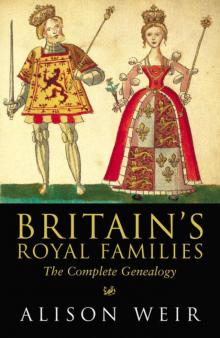 Britain's Royal Families: The Complete Genealogy
Britain's Royal Families: The Complete Genealogy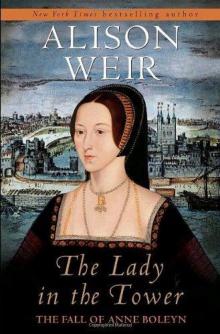 The Lady in the Tower: The Fall of Anne Boleyn
The Lady in the Tower: The Fall of Anne Boleyn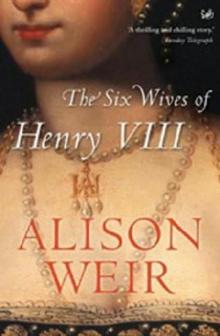 Six Wives of Henry VIII
Six Wives of Henry VIII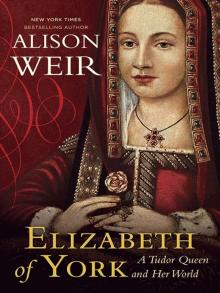 Elizabeth of York: A Tudor Queen and Her World
Elizabeth of York: A Tudor Queen and Her World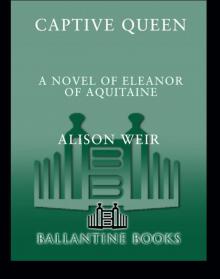 Captive Queen
Captive Queen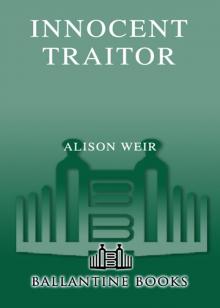 Innocent Traitor
Innocent Traitor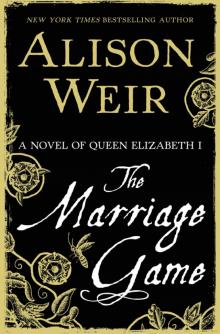 The Marriage Game
The Marriage Game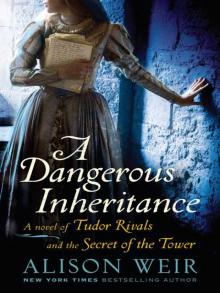 A Dangerous Inheritance
A Dangerous Inheritance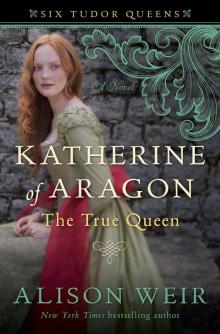 Katherine of Aragón: The True Queen
Katherine of Aragón: The True Queen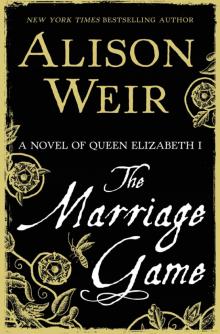 The Marriage Game: A Novel of Queen Elizabeth I
The Marriage Game: A Novel of Queen Elizabeth I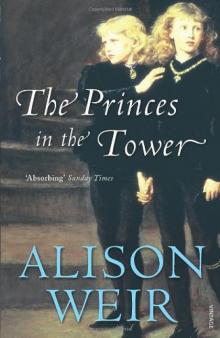 Princes in the Tower
Princes in the Tower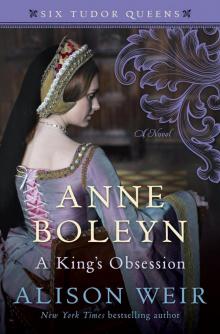 Anne Boleyn: A King's Obsession
Anne Boleyn: A King's Obsession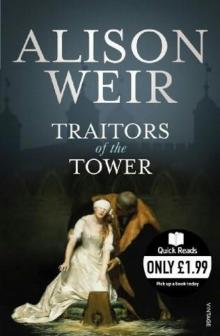 Traitors of the Tower
Traitors of the Tower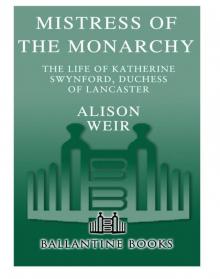 Mistress of the Monarchy: The Life of Katherine Swynford, Duchess of Lancaster
Mistress of the Monarchy: The Life of Katherine Swynford, Duchess of Lancaster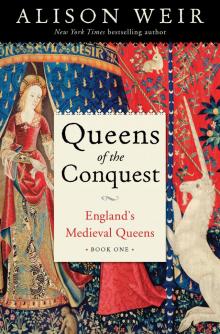 Queens of the Conquest: England’s Medieval Queens
Queens of the Conquest: England’s Medieval Queens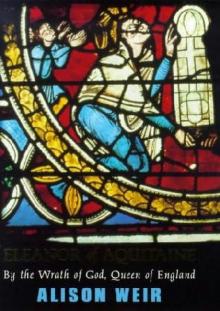 Eleanor of Aquitaine: A Life
Eleanor of Aquitaine: A Life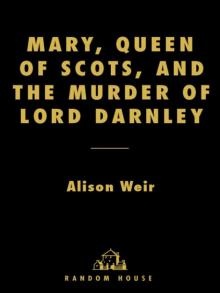 Mary, Queen of Scots, and the Murder of Lord Darnley
Mary, Queen of Scots, and the Murder of Lord Darnley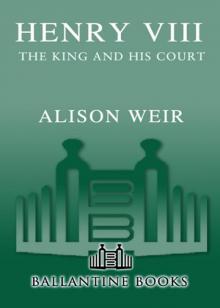 Henry VIII: The King and His Court
Henry VIII: The King and His Court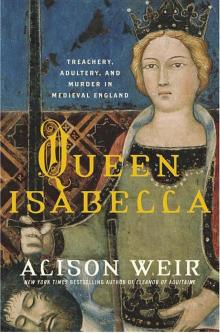 Queen Isabella: Treachery, Adultery, and Murder in Medieval England
Queen Isabella: Treachery, Adultery, and Murder in Medieval England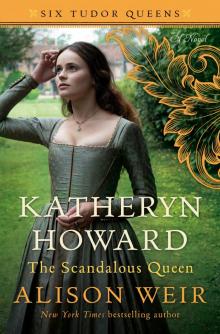 Katheryn Howard, the Scandalous Queen
Katheryn Howard, the Scandalous Queen Arthur- Prince of the Roses
Arthur- Prince of the Roses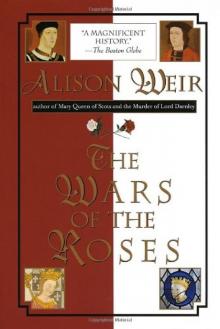 The Wars of the Roses
The Wars of the Roses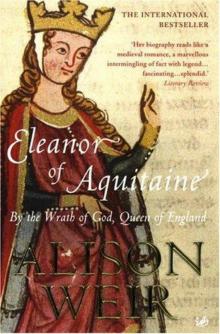 Eleanor of Aquitaine: By the Wrath of God, Queen of England
Eleanor of Aquitaine: By the Wrath of God, Queen of England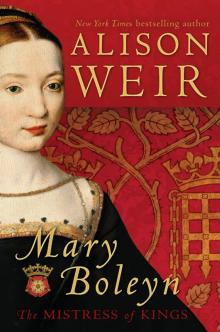 Mary Boleyn: The Great and Infamous Whore
Mary Boleyn: The Great and Infamous Whore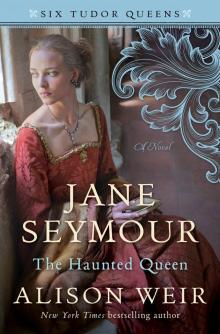 Jane Seymour: The Haunted Queen
Jane Seymour: The Haunted Queen Anna of Kleve, the Princess in the Portrait
Anna of Kleve, the Princess in the Portrait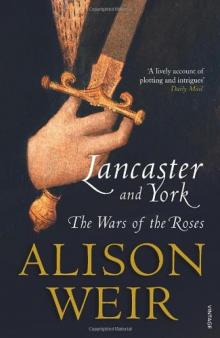 Lancaster and York: The Wars of the Roses
Lancaster and York: The Wars of the Roses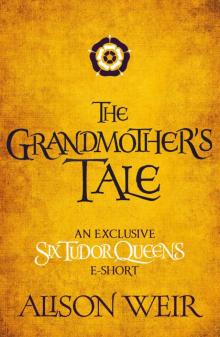 The Grandmother's Tale
The Grandmother's Tale The Princess of Scotland (Six Tudor Queens #5.5)
The Princess of Scotland (Six Tudor Queens #5.5)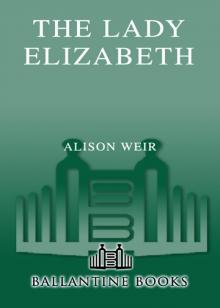 The Lady Elizabeth
The Lady Elizabeth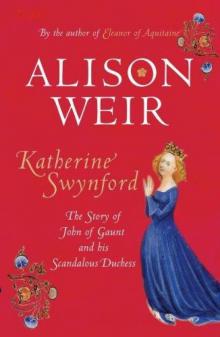 Katherine Swynford: The Story of John of Gaunt and His Scandalous Duchess
Katherine Swynford: The Story of John of Gaunt and His Scandalous Duchess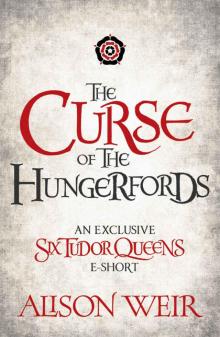 The Curse of the Hungerfords
The Curse of the Hungerfords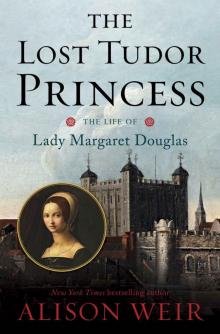 The Lost Tudor Princess: The Life of Lady Margaret Douglas
The Lost Tudor Princess: The Life of Lady Margaret Douglas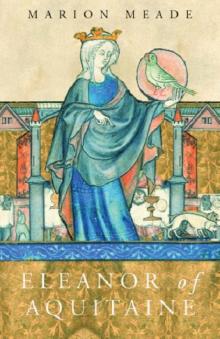 Eleanor of Aquitaine
Eleanor of Aquitaine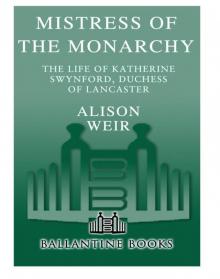 Mistress of the Monarchy
Mistress of the Monarchy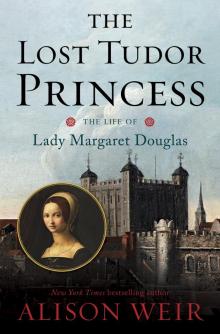 The Lost Tudor Princess
The Lost Tudor Princess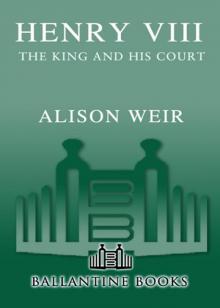 Henry VIII
Henry VIII Anne Boleyn, a King's Obsession
Anne Boleyn, a King's Obsession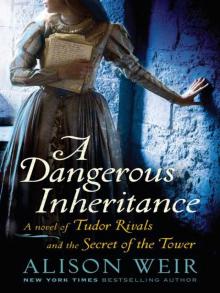 A Dangerous Inheritance: A Novel of Tudor Rivals and the Secret of the Tower
A Dangerous Inheritance: A Novel of Tudor Rivals and the Secret of the Tower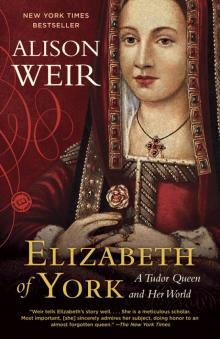 Elizabeth of York
Elizabeth of York Katherine of Aragon, the True Queen
Katherine of Aragon, the True Queen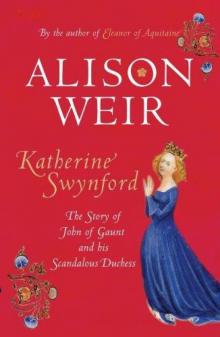 Katherine Swynford
Katherine Swynford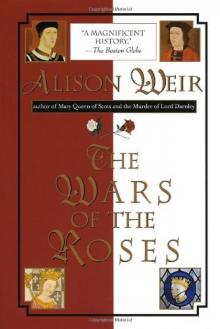 Wars of the Roses
Wars of the Roses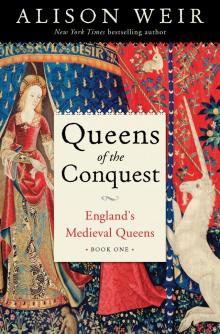 Queens of the Conquest
Queens of the Conquest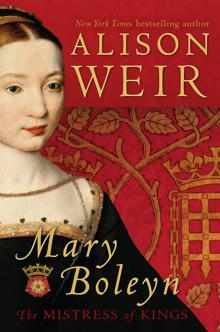 Mary Boleyn
Mary Boleyn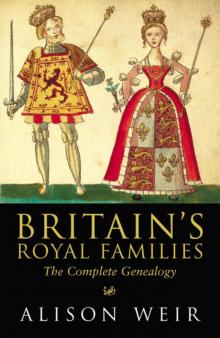 Britain's Royal Families
Britain's Royal Families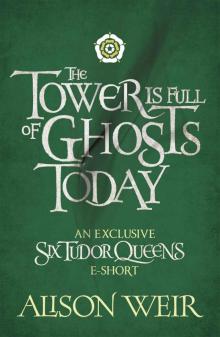 The Tower Is Full of Ghosts Today
The Tower Is Full of Ghosts Today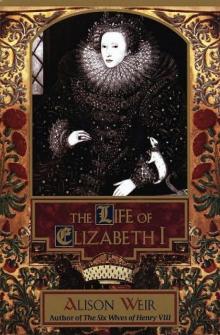 Life of Elizabeth I
Life of Elizabeth I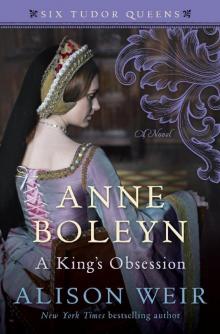 Anne Boleyn A King's Obssession
Anne Boleyn A King's Obssession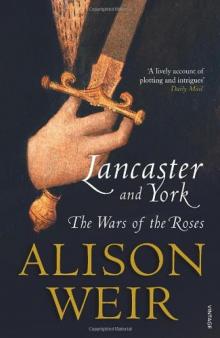 Lancaster and York
Lancaster and York Jane Seymour, the Haunted Queen
Jane Seymour, the Haunted Queen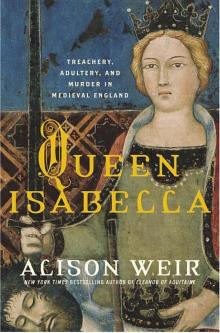 Queen Isabella
Queen Isabella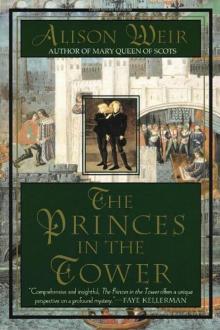 The princes in the tower
The princes in the tower